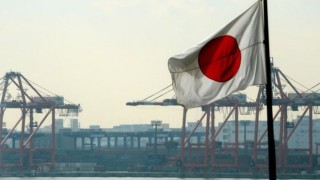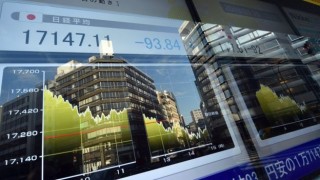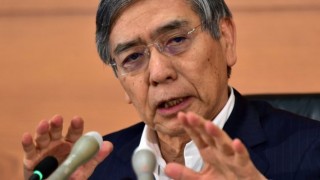Search
▼ Japan's Economy Contracts In Fourth Quarter
- Category:Other
Japan's economy contracted in the final three months of 2015, adding to a string of setbacks for the government's economic reform policy. Between October and December, it shrank by 0.4% compared with the previous quarter, official figures show.
Expectations for the numbers were for a quarterly contraction of 0.3%. Weaker domestic demand, together with slower investment in housing, contributed to the disappointing numbers.
On an annualised basis, the economy contracted 1.4% during the period. That compares with expectations for an annualised contraction of 1.2%.
'Good Shape'
Prime Minister Shinzo Abe's plan to revive the economy - dubbed Abenomics - was introduced after his December 2013 election win.
The aim has been to combat deflation, which Japan has struggled with for nearly two decades, as well as boost demand and investment. But the the world's third-biggest economy has been facing problems.
In the three months to September, according to revised numbers, it avoided a technical recession. But it has been in recession four times since the global financial crisis. However, analysts said Monday's numbers should be viewed in context and that the outlook wasn't all bad.
"A single negative growth number should not be over-interpreted because the economy remains in rather good shape and continues to get strong policy support," said economist Martin Schulz.
"The outlook has certainly deteriorated, however, along with global trends. Growth forecasts will almost certainly be down-adjusted again, and the pressure on the government to come forward with more tangible growth-oriented reforms will increase."
Analysis: Rupert Wingfield-Hayes, BBC News, Tokyo
There has been a lot of hyperbole surrounding the Abenomics project. The Bank of Japan's vast money printing project has been described as a "money-spewing bazooka".
Mr Abe's economic policy - Abenomics - is based on three arrows:
- The monetary arrow: expansion of the money supply to combat deflation
- The fiscal arrow: increased government spending to stimulate demand in the economy
- The structural arrow: structural reforms to make the economy more productive and competitive
Haruhiko Kuroda, governor of the country's central bank, has repeatedly said he will do "whatever it takes" to defeat 20 years of deflation. But the core of Abenomics is not reflation; it is weakening the Japanese currency, the yen.
Why? Because Mr Abe and his advisors know that the only easy way to get Japan growing again is to increase exports - the most important engine of growth for Japan, say analysts.
Stock Market Worries
Investors seemed to shrug off Monday's growth numbers, with the benchmark Nikkei 225 jumping more than 4% shortly after the figures were released. However, the benchmark shed more than 11% last week, which was a short trading week due to a public holiday on Thursday.
The country's big exporters were particularly hard hit as a stronger yen against the dollar hurt investor sentiment.
A stronger yen makes exporters' products more expensive to purchase overseas and hurts profits when they repatriate earnings. Analysts have said the country needs to focus on exports in the coming months as the economy's main driver of growth.
"Until December, exports have still been growing, thanks to a lower yen," said Mr Schulz. "But both trends have already been reversed during December, and the yen is rallying now," he added.
Other Growth Efforts
In a surprise move last month, the Bank of Japan (BOJ) introduced a negative interest rate of -0.1%. The rate cut into negative territory - the first ever for Japan - is designed to increase spending and investment, which should in turn boost economic growth.
The negative rate means that commercial banks are now charged by the BOJ for some deposits. It was instigated to encourage commercial banks to use reserves to lend to businesses in an attempt to counter Japan's economic stagnation.
Some analysts however have cast doubt over how effective the rate cut will be. Mr Schulz said weaker investment, including housing investment, would probably carry on well into 2016.
"While lower interest rates certainly help investment, construction now faces restraints from the demand side because housing prices are already so high."
- February 15, 2016
- Comment (0)
- Trackback(0)





